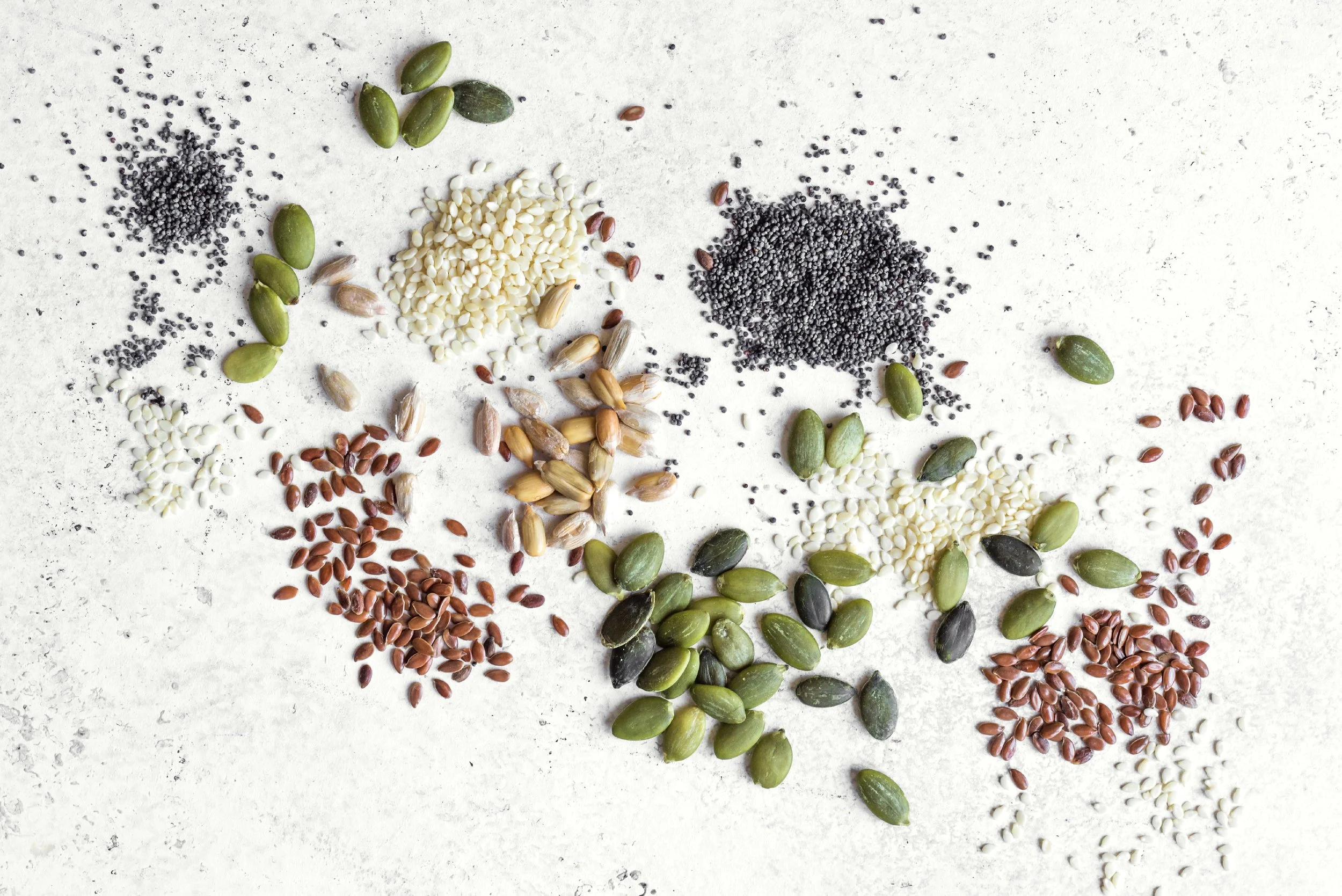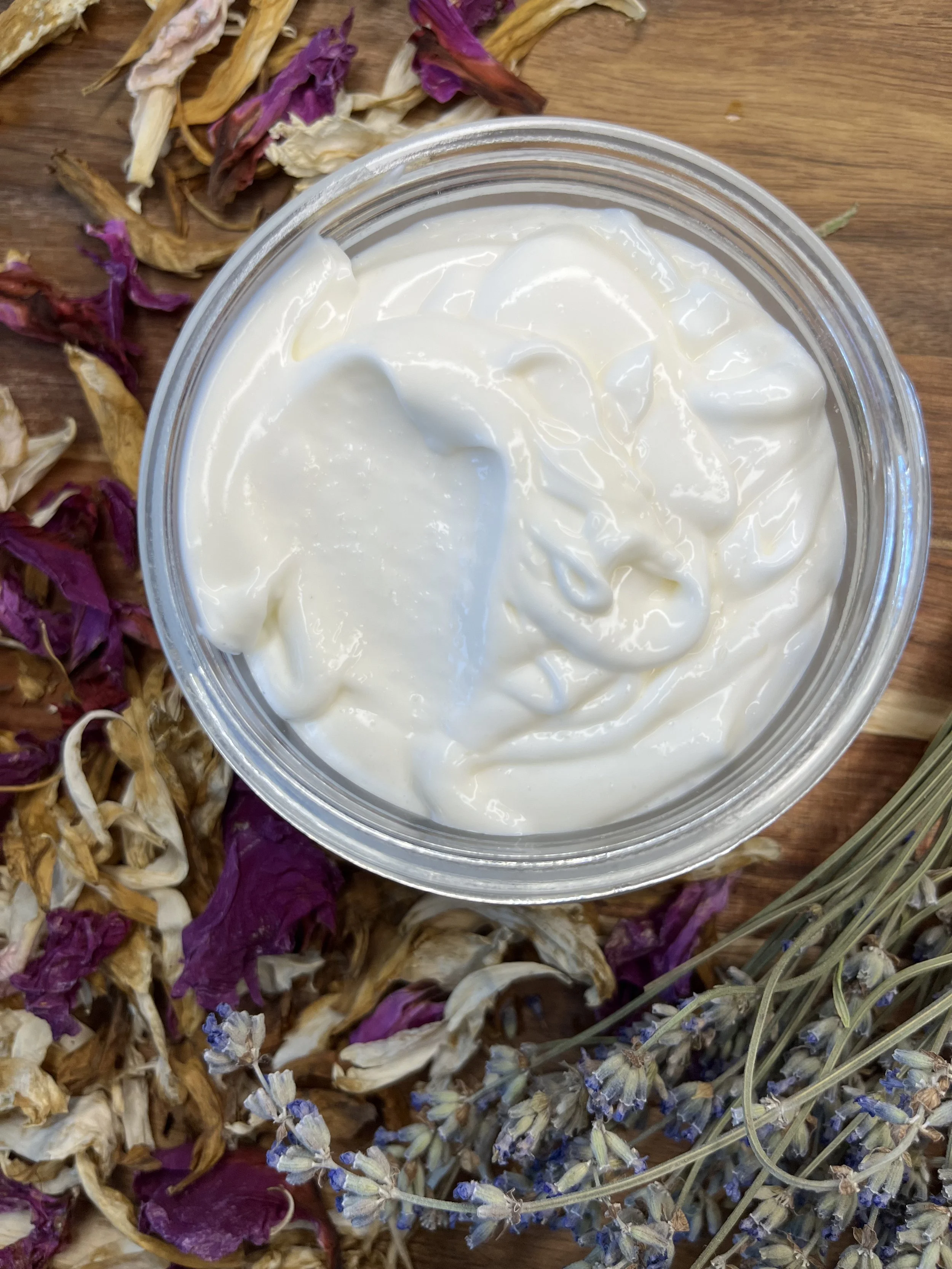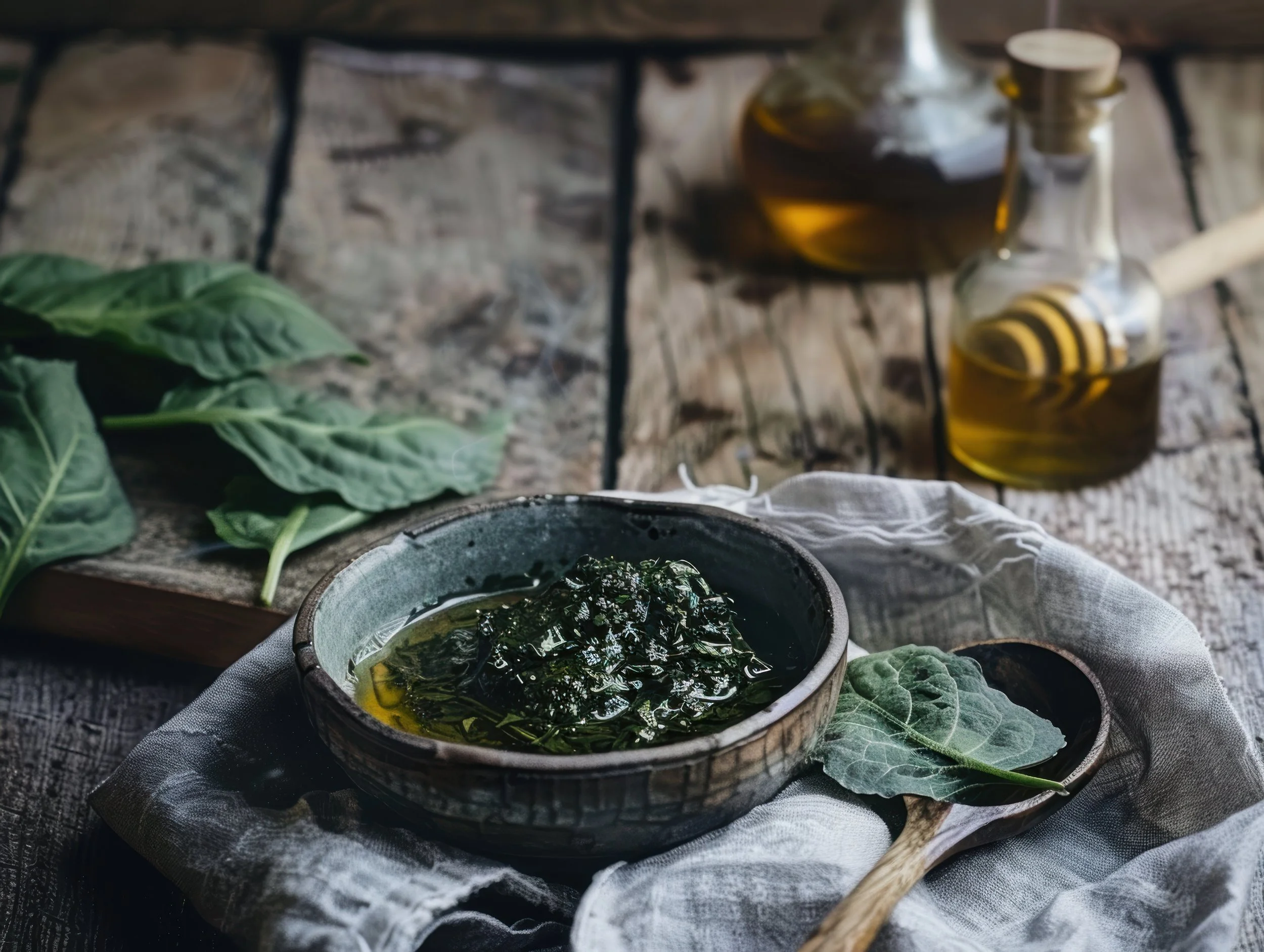6 Herbs to Aid Digestion
Digestive discomfort can really put a damper on your day. Whether you're looking to ease bloating, soothe inflammation, or support overall gut health, nature has provided us with a diverse array of herbal allies. In this post, we’ll explore six powerful herbs known for aiding digestion. Drawing on centuries of traditional wisdom and modern research, these herbal remedies offer gentle yet effective support for your digestive system. Embrace these natural allies to nurture a happy, balanced gut and optimize your overall well-being.
Licorice, Glycyrrhiza uralensis, Glycyrrhiza inflata, and Glycyrrhiza glabra
Soothe pain and inflammation
anti-inflammatory
Licorice is a versatile legume that has been a cornerstone of Traditional Chinese Medicine for centuries. Native to Asia, the Middle East, and Europe, this herb is recognized for its distinctive ladders of oval-shaped leaves and clusters of small, bushy, blue-ish flowers. Predominantly harvested for its thick, succulent root, licorice has captivated herbalists for its natural sweetness and potent healing properties.
The medicinal power of licorice lies in its secondary metabolites—triterpenes, flavonoids, and polysaccharides—which work together to reduce inflammation and soothe irritation in the digestive tract. By inhibiting enzymes in the stomach responsible for the production of inflammatory prostaglandins, licorice helps protect and heal the stomach lining. Its anti-inflammatory actions make it especially valuable for those experiencing stomach aches, acid reflux, or other digestive imbalances.
For practical use, licorice root can be slow-boiled as a decoction to maximize the release of its essential oils, or enjoyed as part of a custom herbal tea blend. You can also chew on a piece of fresh licorice root for a naturally sweet treat that doubles as digestive relief. Incorporate this gentle herb into your daily regimen to support a calm and comfortable digestive process.
Cramp Bark, Viburnum opulus
Ease cramps
antispasmodic
Cramp Bark is a deciduous shrub native to Europe and North America, celebrated for its potent antispasmodic properties that help ease cramping. Characterized by its small, clustered white flowers and bright red berries, this plant can reach impressive heights—up to 15 feet tall—and has a robust presence in traditional herbal medicine. While its berries are edible, the true star is the bark, revered for its medicinal potency.
The bark of Cramp Bark contains methyl salicylate—a natural pain reliever and precursor to aspirin—along with antispasmodic compounds that relax smooth muscle, thereby alleviating painful cramps and muscle spasms in the digestive system. This herb has long been used to soothe abdominal discomfort and as a remedy for menstrual and gastrointestinal cramping. Its action serves to ease tension and promote relaxation, making it a trusted ally for those prone to digestive spasms.
For therapeutic use, Cramp Bark can be brewed into a decoction that is sipped internally or applied externally via a hot fomentation. A hot compress made from an infusion of the bark can loosen tight stomach muscles and relieve cramping. As with all potent herbs, proper dosing and guidance from a qualified herbal practitioner are recommended to ensure both safety and efficacy.
Castor Oil, Ricinus communis
Alleviate constipation
laxative
Castor Oil is derived from the seeds of Ricinus communis, a beautiful flowering perennial native to Asia and Africa. The plant boasts glossy, deeply lobed leaves that vary from dark green to purple-red, and after pollination, its distinctive spiked seed capsules become the source of this potent oil. Castor Oil has earned its place as a time-honored remedy for alleviating constipation and promoting healthy bowel movements.
Rich in ricinolein—a bioactive fatty acid—Castor Oil acts as a potent laxative by stimulating the intestines and softening stools, thereby promoting smooth, regular bowel movements. This unique component not only aids in relieving occasional constipation but also supports overall digestive motility and gut function. Its efficacy as a purgative has made it a staple in traditional medicine, valued for its ability to provide quick relief when nature calls.
For effective use, take a small spoonful of Castor Oil when constipation strikes—its action is typically rapid and potent. Given its strength, it’s best used on an as-needed basis rather than as a daily supplement. Always follow dosage recommendations, and consider combining it with natural dietary fibers, water, and a balanced diet to optimize its digestive benefits.
Wormwood, Artemisia absinthium
Aid in meal digestion
bitters
Wormwood is a bitter, aromatic herb native to Northern Africa, Europe, and Western Asia. With its branched yellow-green leaves and drooping, bulbous yellow flowers, wormwood has been a staple in digestive bitters for generations. Notably, it was a key ingredient in the legendary beverage absinthe, highlighting its long history in culinary and medicinal traditions alike.
The herb is celebrated for its ability to stimulate and regulate digestive functions through its bitter principles. Wormwood contains active compounds such as absinthin, anabsinthin, and thujone, which help stimulate gallbladder secretion and enhance digestive motility. This action promotes the production of digestive enzymes and supports smooth digestion—especially beneficial after heavy meals or during periods of sluggish digestion.
For inclusion in your daily digestive routine, wormwood can be taken as part of a digestive bitters tincture, brewed into a tea, or added to a cocktail of other herbal bitter ingredients. Its potent flavor not only awakens the digestive process but also provides a refreshing counterpoint to sugary or heavy foods. Regular, moderated use can help maintain a well-functioning digestive system, balancing digestion naturally.
Cloves, Syzygium aromaticum
Fight infections
antimicrobial and anti-parasitic
Cloves are the aromatic flower buds harvested from the clove tree, an evergreen native to tropical Indonesia. Recognized by their warm, spicy fragrance and deep red hue when dried, cloves have played a dual role in the culinary and medicinal worlds for centuries. Their unmistakable aroma and flavor make them a beloved spice, while their potent antimicrobial properties make them a trusted remedy for digestive and systemic infections.
The key to clove’s medicinal prowess lies in its essential oil, which is composed of 70–90% eugenol—a powerful compound known for its antimicrobial and anti-parasitic activities. This makes cloves particularly effective in combating gut infections and supporting overall digestive health. By fighting off parasitic organisms and harmful bacteria, cloves help maintain a balanced intestinal flora and promote a healthy digestive environment.
To harness its benefits, cloves can be steeped in hot water to create an aromatic tea that captures their volatile oils, or used as a tincture to ensure direct delivery of the essential compounds. Using clove-infused teas or adding a drop of clove oil to your herbal blends can be an effective strategy to reinforce your digestive health while celebrating the spice’s rich heritage.
Turmeric, Curcuma longa
Overall digestive health
restorative
Turmeric, a vibrant yellow root from the ginger family, is celebrated worldwide for its multifaceted benefits in digestive health. Native to Asia, this herb has a long history of use in both traditional medicine and culinary practices. Its bright hue is a testament to its active constituent, curcumin—an antioxidant and anti-inflammatory compound that has earned global acclaim for its restorative properties.
Curcumin in turmeric works by balancing the gut microbiome and reducing inflammation throughout the digestive tract. This powerful action aids in relieving symptoms of acid reflux, irritable bowel syndrome (IBS), and Crohn’s Disease, while also protecting the stomach lining from oxidative stress. Regular incorporation of turmeric into your diet can support not only your digestive function but also your overall systemic health.
Turmeric is highly versatile and can be consumed in several forms. It is effective when taken as a capsule for a concentrated dose, mixed into teas with honey for a soothing drink, or added to meals as a flavorful spice that brings both color and health benefits. For those seeking a liquid form of delivery, turmeric tinctures can be an excellent option. Embrace this golden herb as part of your daily wellness routine to enjoy revitalized digestive health and improved gut balance.
Final Thoughts
Herbs have long been champions in the field of digestive wellness—each offering unique properties to soothe inflammation, ease cramps, alleviate constipation, stimulate digestion, and fight infections. By integrating these six herbal allies—Licorice, Cramp Bark, Castor Oil, Wormwood, Cloves, and Turmeric—into your digestive regimen, you can nurture a well-functioning and balanced gut. Remember to consult a healthcare professional before starting any new herbal therapy, especially if you have pre-existing conditions or are pregnant or breastfeeding, to tailor these natural remedies to your individual needs.



















Hello and welcome! I'm Eve, a Chemist turned Herbalist, sharing the wonders of plant medicine and botanical skincare. Join me on this journey to Learn, Create, and Align your Divine!